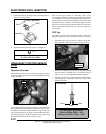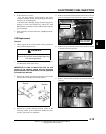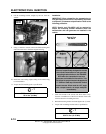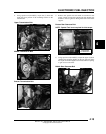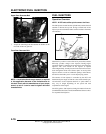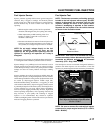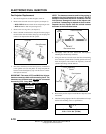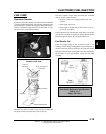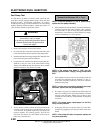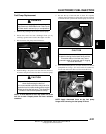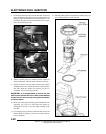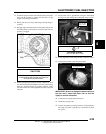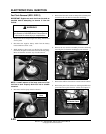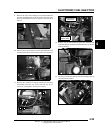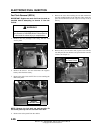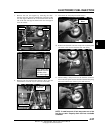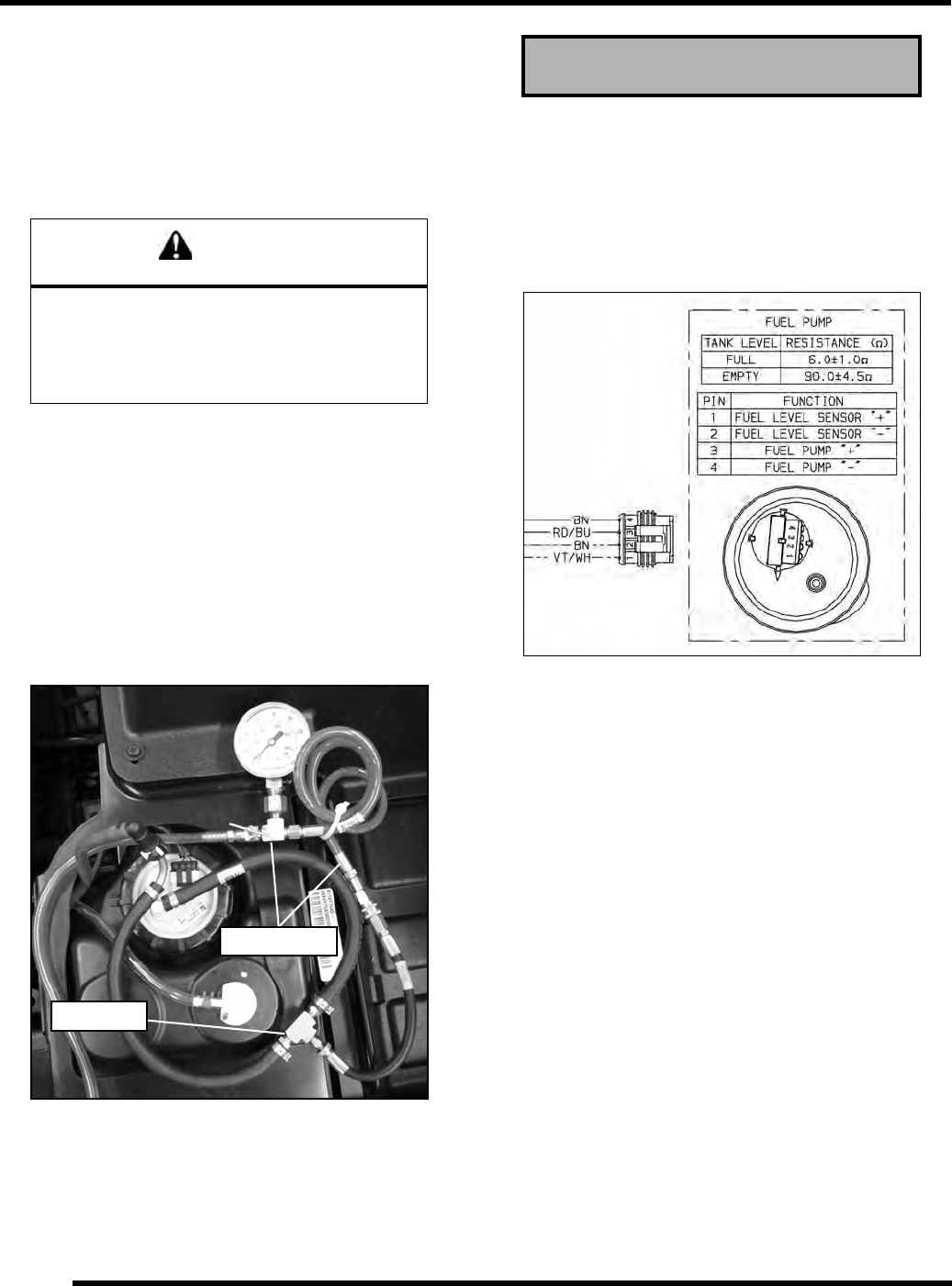
4.20
ELECTRONIC FUEL INJECTION
9923142 - 2011 RANGER RZR / RZR S / RZR 4 Service Manual
© Copyright 2010 Polaris Sales Inc.
Fuel Pump Test
If a fuel delivery problem is suspected, make certain the fuel
pump filters are not plugged, that the pump is being activated
through the ECU, all electrical connections are properly
secured, the fuses are good, and a minimum of 7.0 volts is being
supplied. If during starting the battery voltage drops below 7.0
volts, the ECU will fail to operate the system.
1. Remove the passenger seat from the vehicle.
2. Cover the fuel line connection at the fuel tank with a shop
towel and disconnect the line from the fuel pump outlet.
3. Install the Fuel Pressure Gauge Adaptor (PV-48656) in-line
between the fuel pump outlet and fuel line.
4. Connect the hose from the Fuel Pressure Gauge Kit (PU-
43506-A) to the test valve on the Fuel Pressure Gauge
Adaptor (PV-48656). Route the clear hose into a portable
gasoline container or the vehicle’s fuel tank.
5. Turn on the key switch to activate the pump and check the
system pressure on the gauge. If system pressure of 45 psi
2 is observed, the ignition switch, ECU, fuel pump, and
pressure regulator are working properly. Turn the key
switch off and depress the valve button on the tester to
relieve the system pressure.
NOTE: If the fuel pressure is out of specification,
replace the fuel pump assembly.
6. If the pump did not activate (Step 5), disconnect the harness
connector from the fuel pump. Connect a DC voltmeter
across terminals “3” and “4” in the plug on the vehicle fuel
pump harness. Turn on the key switch and observe voltage
to ensure a minimum of 7 volts is present.
NOTE: If the voltage was below 7 VDC, test the
battery, ignition switch, relay(s), wiring harness and
ECU.
7. If the reading is between 7 and 14 volts, turn key switch off
and connect an ohmmeter between terminals “3” and “4”'
at the white fuel pump connector to check for continuity
within the fuel pump.
NOTE: If there was no continuity between the pump
terminals, replace the fuel pump assembly.
8. If voltage at the plug was within the specified range, and
there was continuity across the pump terminals, reconnect
the plug to the fuel pump, making sure you have a clean
connection. Turn on the key switch and listen for the pump
to activate.
NOTE: If the pump starts, repeat steps 3, 4 and 5 to
verify correct pressure.
9. If the pump still does not operate, check for correct ECU
operation by plugging in a known-good ECU of the same
model.
NOTE: If the pump still does not operate, replace the
fuel pump assembly.
WARNING
Fuel is extremely flammable and may cause
severe burns, injury, or death.
Do not use any device that produces a flame or
electrical devices that may spark around
fuel or fuel vapors.
PV-48656
PU-43506-A
Normal Fuel Pressure: 45 +/- 2 psi.



